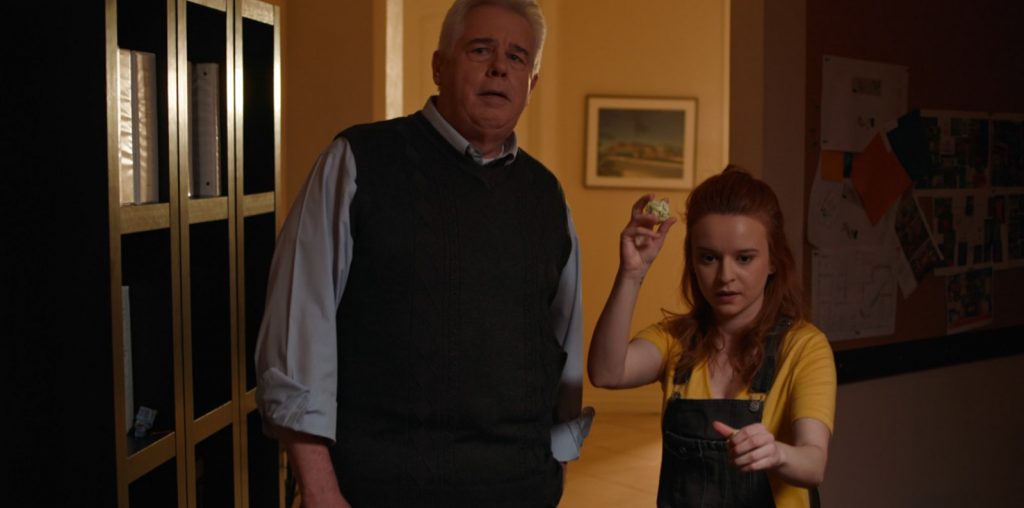
What happens to the people who audition for film roles but do not get cast? If they’re friends of director-writer Cliff Hensley, apparently they get together and make the movie themselves. “The Scam Artist” is the movie in hypothetical question and it is anything but extraordinary. Looking at the technical aspects such as lighting, cinematography, and editing, to the more artistic elements like acting, script, and set design, mediocre, barely adequate, and painfully funny are more accurate descriptors. Given the plot, it’s highly doubtful that Hensley intended his film to be so hilarious. The fits of laughter are not the result of well written jokes or physical comedy; instead, they are the responses to overly emphatic line delivery, awkward editing, and the film’s constant oscillation between campy and crummy.
“The Scam Artist” takes place in a not-so-distant future of 2015 where Sylvia (Kimberly Page) and her boyfriend David (Michael Larson) hire mercenary Lenny (Dallas Page) to stage her kidnapping. Of course, Sylvia and David plan to use the ransom money to start a life together; and Lenny, well, he’s a mercenary—he’ll do anything for money. A common flaw in film is the inability to convey the motivations behind the characters’ actions. During the writing phase for “The Scam Artist,” Hensley must have wanted to avoid this kind of problem because he spells everything out in his film. Nothing is left to the imagination until the final fifteen minutes when we learn something ominous about Sylvia, the daughter of Winston Heinrich (Tim McNally), who is the head of Dynamic Technologies.
The information overkill is an example of the film’s shortcomings, but Hensley outdoes himself with the other faults. There are numerous flashbacks that serve no functional purpose other than to provide more opportunities for the actors to engage in predictable, trite, and pseudo-philosophical banter; and thus more reason for us to chuckle. Though the beginning text tells us that film is set in the future, none of the costumes or sets signifies that the characters are living in any decade beyond the 90s. The only futuristic bit about the film is the cell phone that is made from a make-up compact, which looks corny as opposed to cool. The actors don’t seem to mind, though. We shouldn’t either, but we do. We could be more sympathetic and consider that perhaps 2015 looks no different than 1995 because Hensley couldn’t afford to create that kind of visual difference. Yet, the more we give Hensley the benefit of the doubt, the less credible he becomes as a filmmaker. Lack of funds should not hinder an artist’s vision. On the contrary, it should be the source of ingenuity or the catalyst of creative compromise.
Independent films are frequently the children of writer-directors or director-writers. If the quality of the picture offers any insight on why the two hats sit on one head, “The Scam Artist” is a warning. Is Hensley the director and writer of “The Scam Artist” because he couldn’t find a director to work with or a scriptwriter to put his idea onto paper? If Hensley had to take on both duties out of default, he should seriously consider getting a partner before he makes another film—preferably someone with talent.

